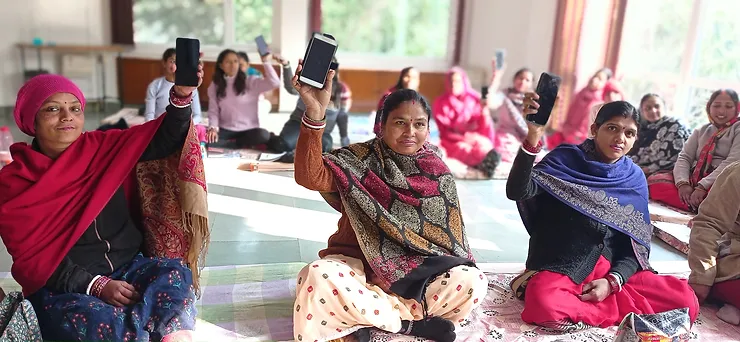Gender inequality in India is evident in the low sex ratio and gender inequality across several development markers such as literacy, workforce participation, land ownership, etc. Prevalent social biases against women and girls affect their access to food and nutrition as well. Women’s livelihoods could make a huge impact on enhancing food security in the long term, by empowering them with resources and decision-making power and giving them a voice to influence the food security status of families and communities. The Government of India supports women’s empowerment through the creation, skilling, and credit linkage of the Women’s Self-help Groups (WSHGs) among rural and urban poor women.
Aligning with this initiative of the Government, the WFP Trust for India along with its primary partner the United Nations World Food Programme (WFP), as part of joint efforts towards eradication of hunger and malnutrition, are working on the capacity strengthening of WSHG members, in Delhi NCR, on essential skills required to take up economic activities. Enhanced income levels have been found to be key in enabling women access better food and nutrition for themselves and their children.
Supported by EXL Service, financial and digital literacy for women empowerment, a key CSR thematic area of the company, the intervention seeks to enhance the ability of target beneficiaries to access credit and take up economic activities.
Members of women’s self-help groups whether in rural or urban areas typically come from poorer households and are often illiterate or with only basic education. Many of them have never had jobs previously and lack communication skills or exposure. For such women to take loans from banks and manage a business together is often challenging. The trainings are designed to enable SHG women members to make full use of the opportunities offered by Government schemes to set up their small businesses together and be able to earn incomes and make profits. A needs assessment preceding the activities on ground, found that while many women owned smartphones, they had limited ability/knowledge to operate them without the help of family members. While many women have bank accounts, their knowledge of using ATMs or digital banking was very limited.

The financial literacy module contains basic concepts of financial management and information about the banking system, accessing loans, insurance, and government schemes for financial assistance of the urban poor, especially SHGs. Aligned with the financial module, the digital literacy module teaches women the basics of navigating smartphones, and using the internet on their phones, and highlights digital banking and digital payment services, including UPI.
Following the training, gender sensitisation sessions for both women and men in the community will focus on enhancing gender equity and create an enabling environment for women to pursue their livelihoods following the training.
Feedback from the participating women highlighted an enhanced ability to manage finances, understanding of loans and sources, and usage of digital platforms as key learnings. They expressed enthusiasm to utilize the knowledge in improving their overall financial and digital usage and taking loans to initiate economic activities.
Such empowerment is also critical to their self-confidence and ability to manage their lives in a better manner. One of the direct offshoots is in ensuring and managing the food and nutritional security of their families and their own.
